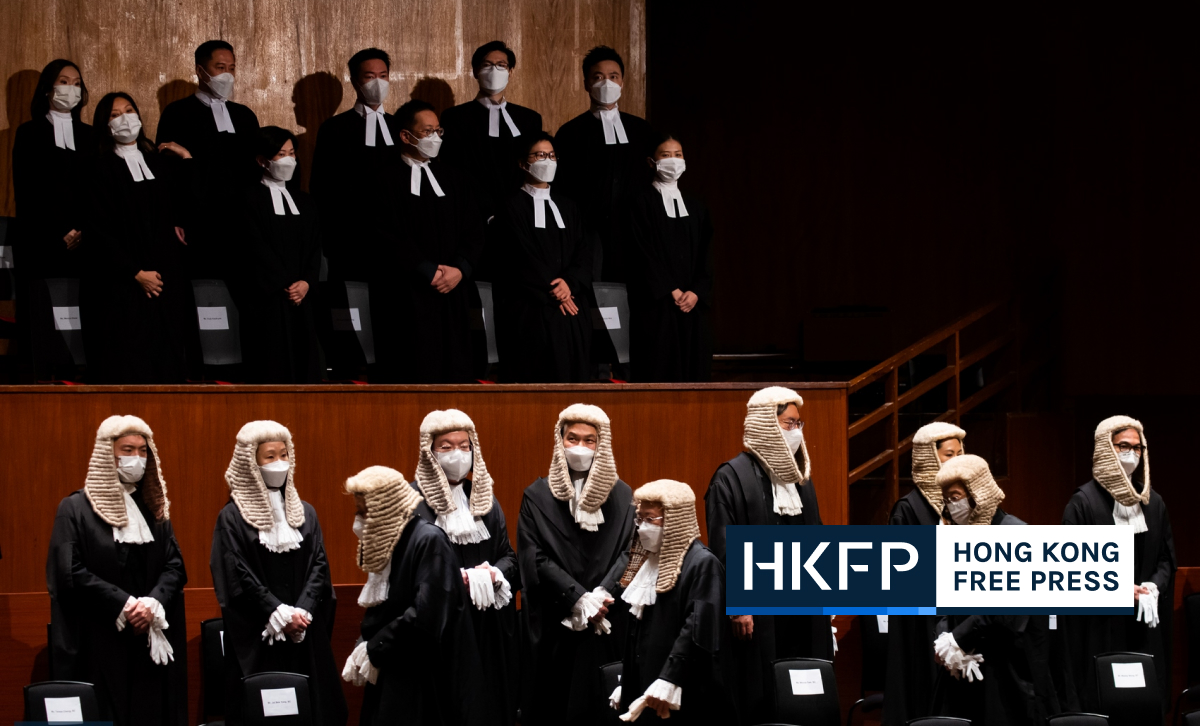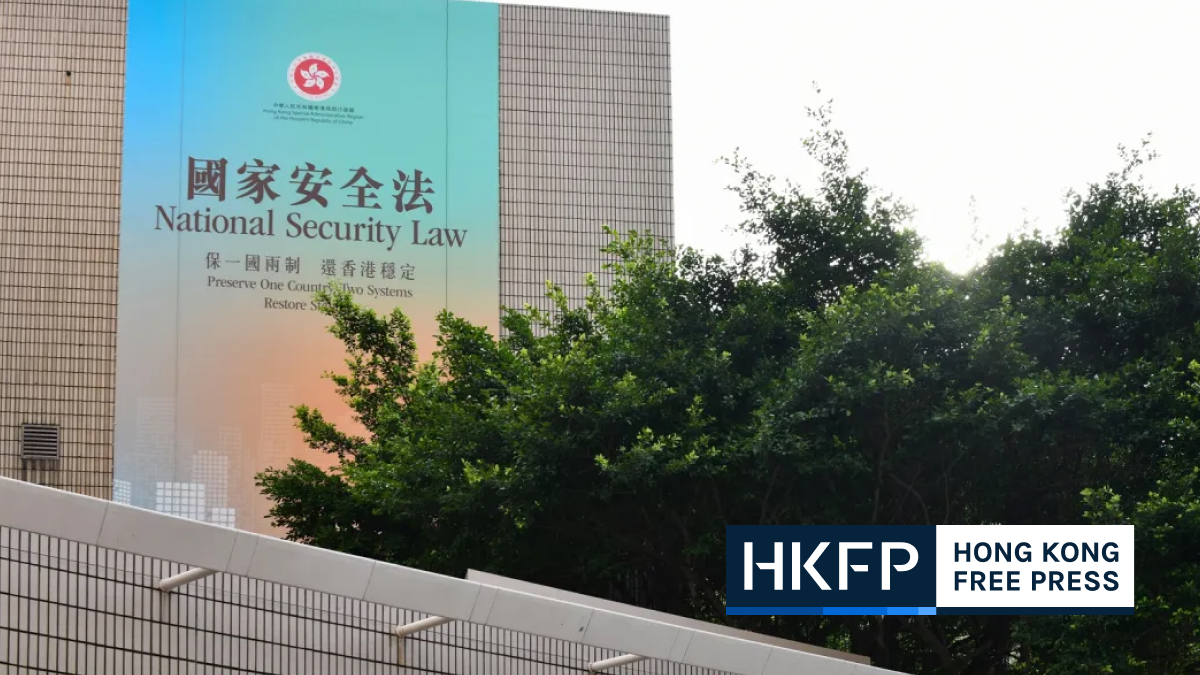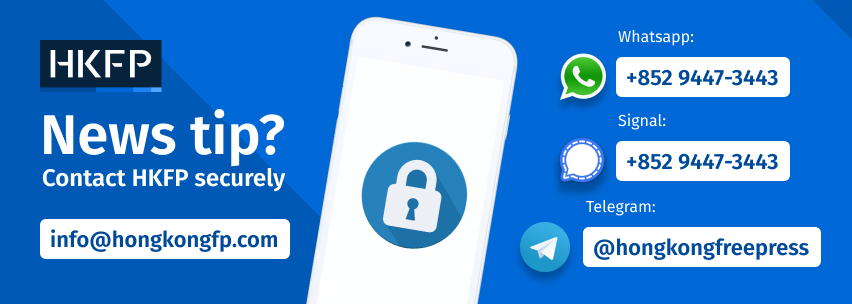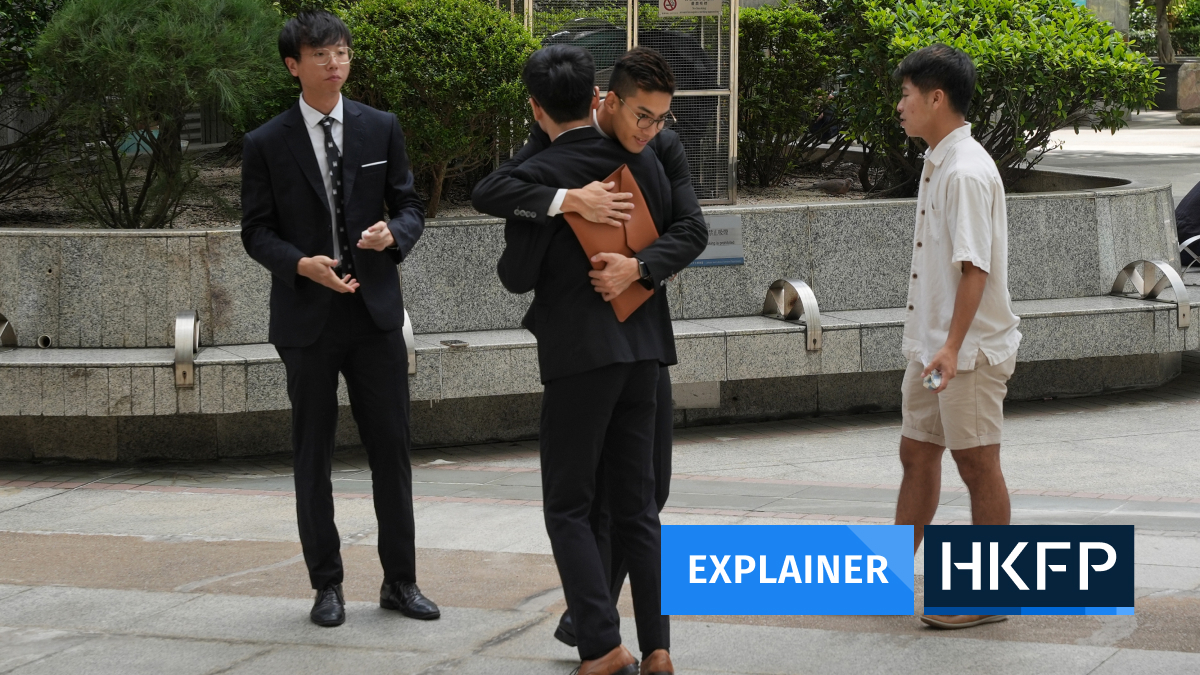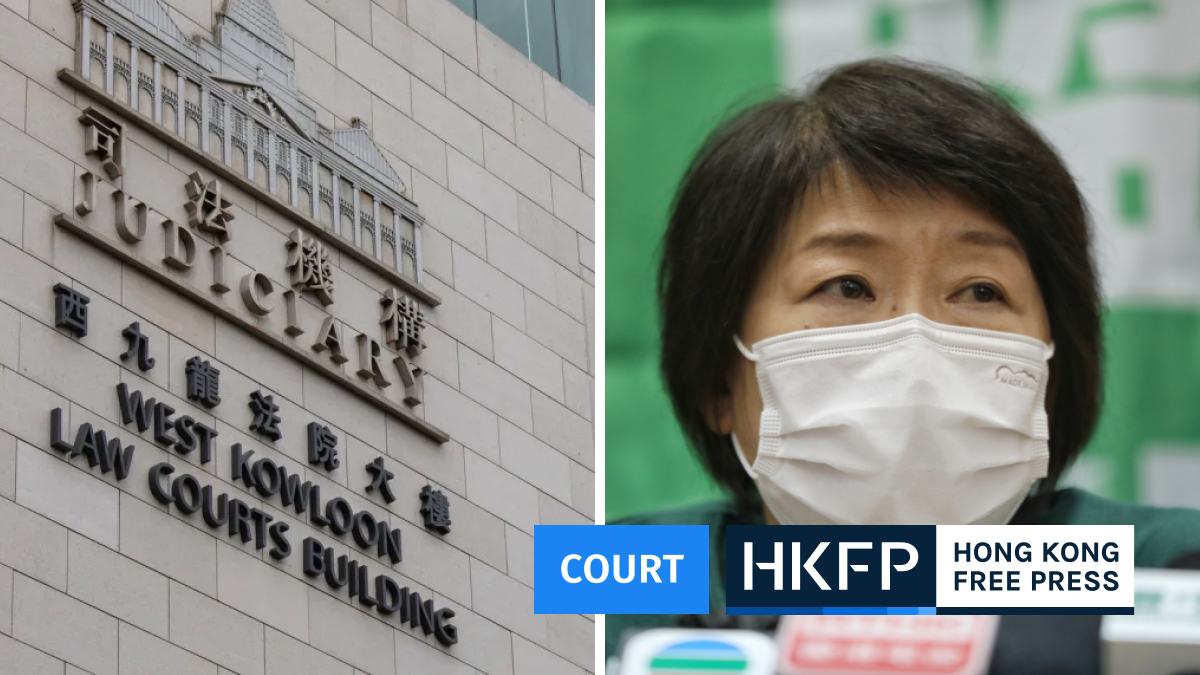Part of HKFP’s Shifting Narratives series.
A little over four years ago, on June 9, 2019, Hong Kong saw an estimated one million people march in opposition to the extradition bill which subsequently sparked months of mass protests and unprecedented turmoil in the city.
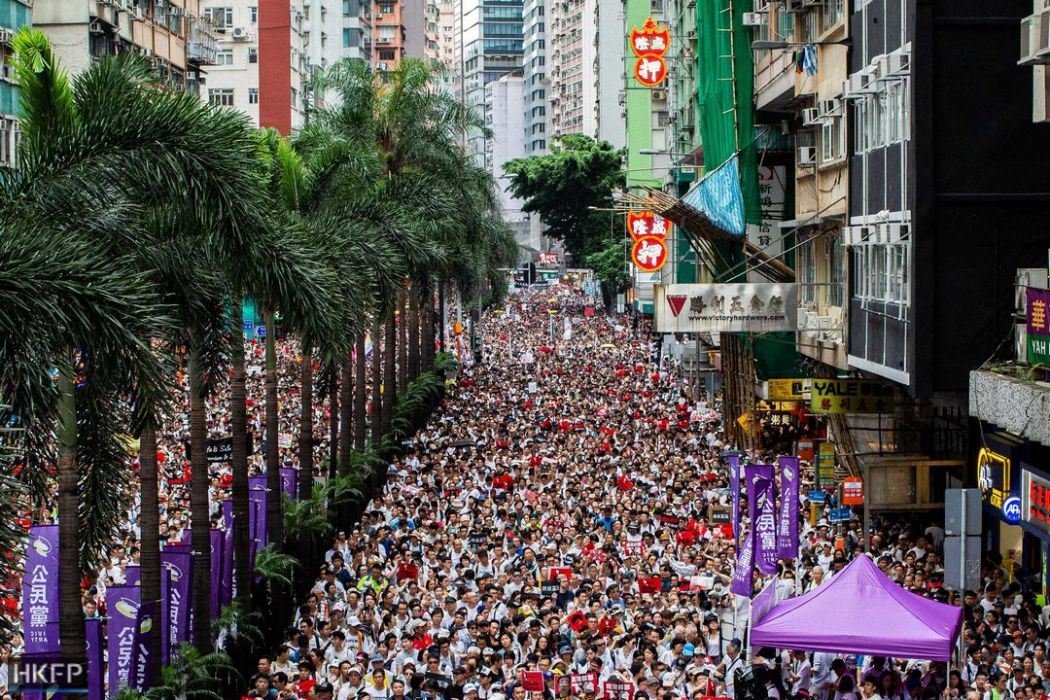
The bill, originally touted as an effort to fix “legal loopholes” in the city’s extradition laws, would have allowed the transfer of suspected offenders to places including mainland China, whose courts are often criticised as opaque and lacking judicial independence.
Opposition lawmakers had slammed the withdrawal of the bill in September that year as “too little, too late” and protests continued unabated. Demonstrators’ demands broadened to include calls for greater democracy and an inquiry into alleged police brutality. As part of our Shifting Narratives series, HKFP revisits how the government responded to the city’s worst political crisis in decades, and how its tone changed over the past few years.
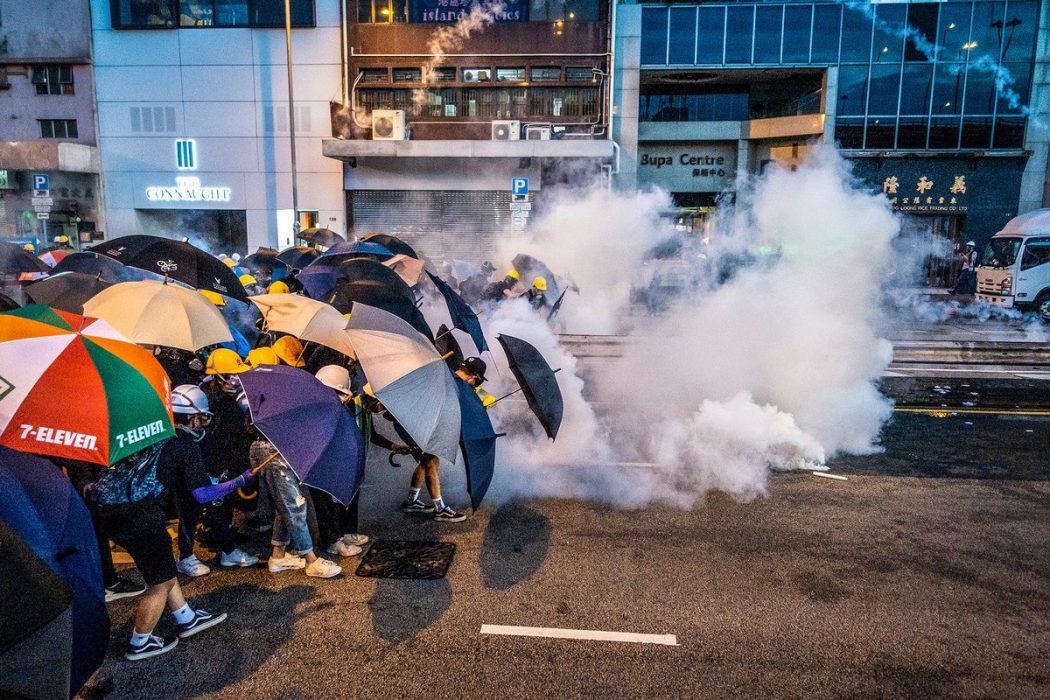
April 29, 2019: A day after thousands of Hongkongers took to the streets to oppose the planned extradition law, then-chief executive Carrie Lam told reporters she was committed to the “not easy task” of getting the bill passed by the Legislative Council (LegCo).
“At the end of the day, we have to ask ourselves whether we will continue to tolerate this loophole in our system on the return of fugitive offenders, to the extent that we will be making Hong Kong a haven for all these offenders of serious crimes from all over the world.”
April 30, 2019: Asked if she would meet pro-democracy legislators on the issue, Lam said: “[I]f the meeting’s main purpose is to pressurise me to withdraw the bill, then there is no purpose for that sort of meeting.”
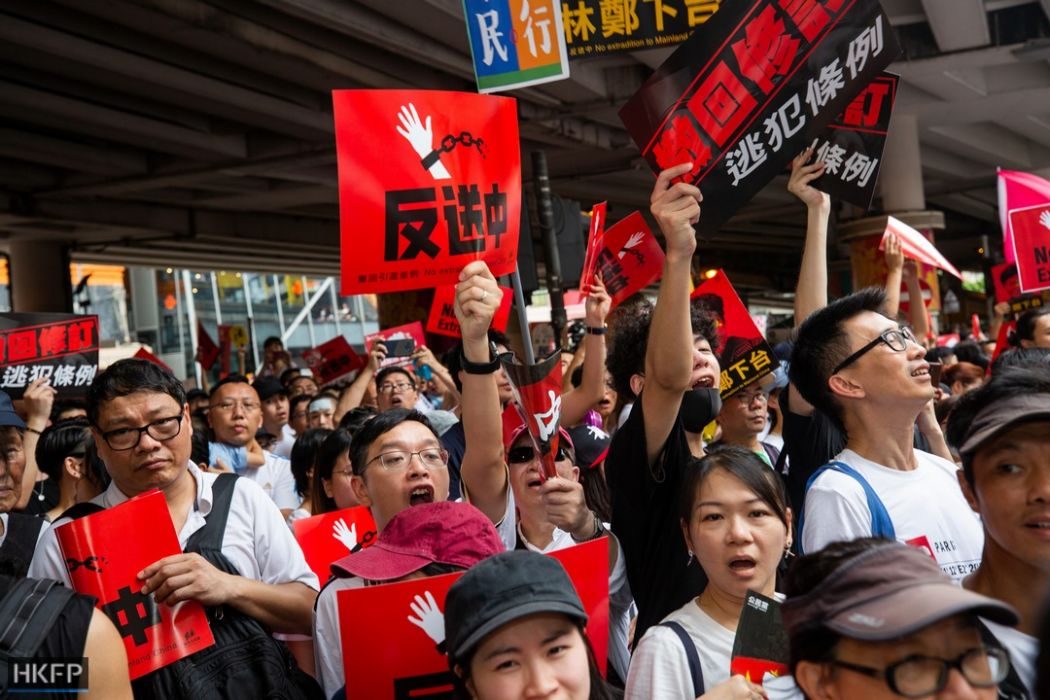
June 9, 2019: More than one million people joined a demonstration against the bill, according to the rally organiser the Civil Human Rights Front. The government said the protest showed how people were able to exercise freedom of expression, but added the second reading of the bill would go ahead as planned.
June 11, 2019: Lam told reporters the government was doing “very responsible work for society” by introducing the bill. She also said that as a mother of two children, she did not want to see young people being affected by “radical acts.”
“They are so young and their future may get affected by politicised events targeting [the bill]. No one wants to see that,” Lam said.
June 12, 2019: Hong Kong police used rubber bullets, bean bags and tear gas to clear thousands of protesters who occupied roads around LegCo and government headquarters in Admiralty district.
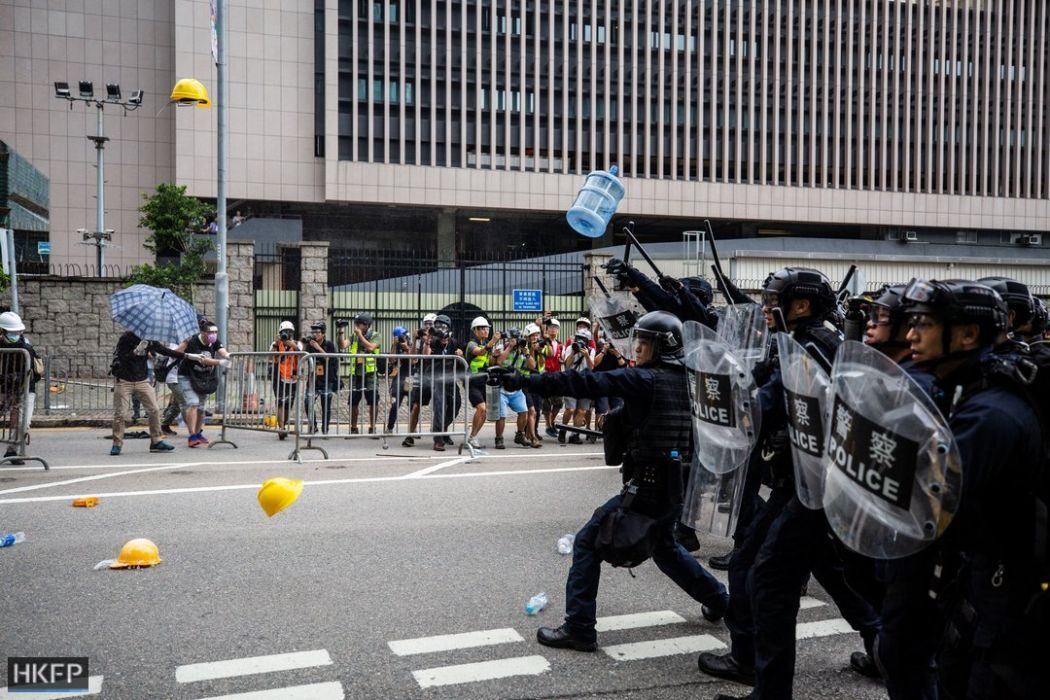
In a televised address the then-chief executive described the clashes between police and protesters as “acts of rioting” that damaged social peace and defied the law. She said such actions were “intolerable” in any civilised society. “Clearly, this is no longer a peaceful assembly but a blatant, organised riot, and in no way an act of loving Hong Kong.”
In an interview with broadcaster TVB the same evening, a tearful Lam rejected criticism that she had “sold out Hong Kong,” saying she had made many personal sacrifices since taking office as chief executive in 2017.
“So, please everyone, you can criticise me, you can curse me, but don’t say I sell out Hong Kong,” she said.
The then-Hong Kong leader also defended her refusal to yield to protesters’ demands. She said that if she made concessions, it would be similar to tolerating “wilful behaviour” by her children.
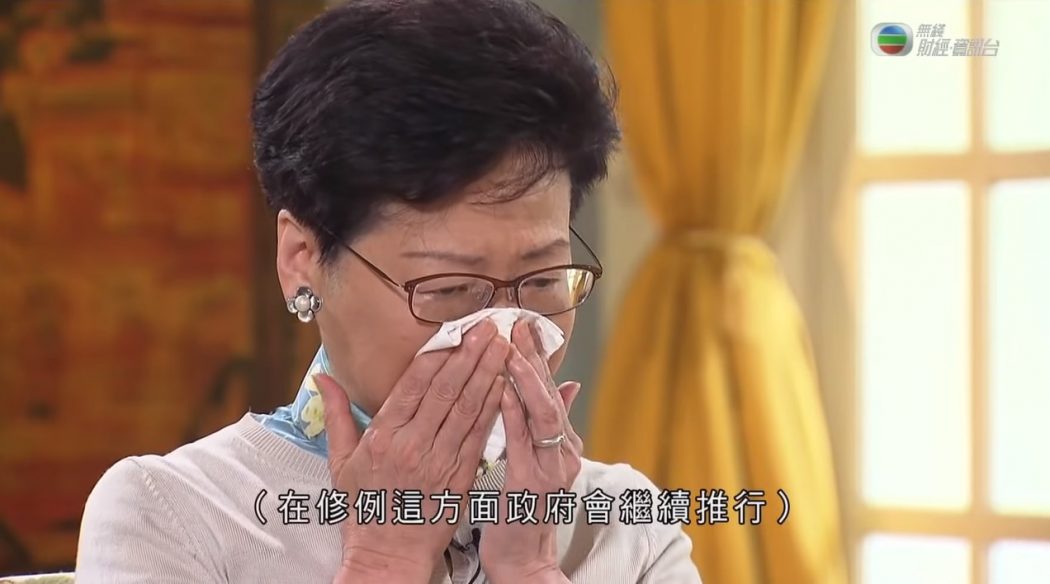
June 15, 2019: In her first concession Lam announced she was suspending efforts to pass the bill and admitted that the government had not made its case effectively, but refused to formally withdraw it.
She stood by the “laudable objectives” of the bill, which she said was intended to handle the case of murder suspect Chan Tong-kai – who was wanted in Taiwan – and “rectify” deficiencies in current arrangements.
“With those two objectives in mind, withdrawing the bill seems to suggest that even those two objectives were erroneous in the first place, and I cannot accept that.”
At a press briefing on this day, Lam was also asked about high-ranking officials reportedly characterising the clashes on June 12 as “a colour revolution instigated by foreign [forces].” In response, she said her administration did not make such a judgement.
June 16, 2019: Hundreds of thousands of people – organisers estimated a turnout of almost two million – staged another protest. Lam in an evening statement apologised to Hongkongers. “The Chief Executive admitted that the deficiencies in the government’s work had led to substantial controversies and disputes in society, causing disappointment and grief among the people.”

June 18, 2019: Lam offered a “sincere, solemn” personal apology. “I personally have to shoulder much of the responsibility. This has led to controversies, disputes and anxieties in society.”
July 1, 2019: Around 550,000 Hongkongers joined the annual July 1 democracy march on the 22nd anniversary of the city’s handover to China, organisers said. In the afternoon, chaotic scenes emerged around the LegCo complex as a group of demonstrators tried to break into the building by ramming glass doors and windows.
Later in the evening, protesters stormed the legislature and spray-painted slogans such as “Carrie Lam step down” and “It was you who taught me peaceful marches did not work.” Some defaced the emblem of the Hong Kong Special Administrative Region (HKSAR) while others unfurled a British colonial flag.
At a press conference the next day, Lam described their actions as an “extreme use of violence” which would be condemned by most people.
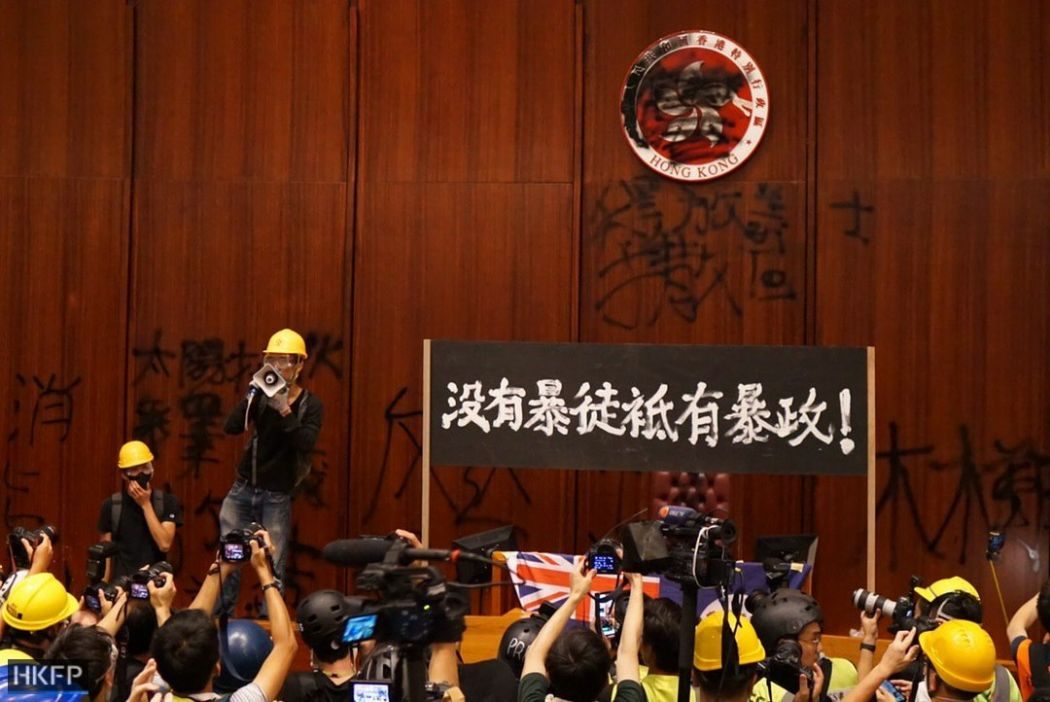
She said one of the protesters’ five demands – granting amnesty for all those arrested – would violate the rule of law.
July 9, 2019: Lam declared the controversial bill to be “dead,” but refused to use the word “withdraw.”
“The bill is dead,” Lam said. “People do not have to worry that we should use some means to discuss this bill again within this legislature term.”

July 22, 2019: Meeting the press the morning after over 100 rod-wielding men indiscriminately attacked civilians including protesters and commuters at the Yuen Long MTR station, Lam described the beatings as “shocking.”
“Let me make this clear again. Violence is not a solution to any problem. Violence will only breed more violence,” she said.
August 9, 2019: At a press conference, Lam was asked why her meetings with different sectors of society did not include those who were protesting.
In response, she said: “[A small minority group of people] did not mind destroying Hong Kong’s economy, they have no stake in the society which so many people have helped to build, and that’s why they resort to all this violence and obstructions causing huge damage to the economy and to the daily life of the people.”

September 2, 2019: Reuters obtained an audio recording of Lam’s speech to a private meeting of businesspeople. She confessed she had caused “unforgivable havoc” to the city.
“If I have a choice, the first thing is to quit, having made a deep apology, is to step down. So I make a plea to you for your forgiveness,” Lam said according to a transcript by Reuters.

The following day, Lam said she had never offered her resignation to China’s government and the decision not to do so was her own choice.
September 4, 2019: After months of citywide unrest, Lam finally announced she would scrap the bill. “The Fugitive Offenders Bill will be formally withdrawn in order to fully allay public concerns,” she said, expressing hopes her move would lay the foundations for a public dialogue to seek solutions to deep-seated issues in society.
But, she added, violence “is damaging the very foundations of our society, especially the rule of law.”
September 26, 2019: The government organised a public dialogue featuring 150 randomly selected citizens, who were each given three minutes to directly address top officials including Lam.
She dismissed criticism the event was a public relations exercise, saying she wanted to listen to people’s voices as she admitted trust in her administration had “fallen off a cliff.”

“The biggest responsibility lies with myself: I won’t shirk the responsibility.”
October 1, 2019: On the 70th anniversary of the founding of the People’s Republic of China, Hong Kong demonstrators staged citywide protests to “mourn” National Day. More than 20 MTR stations were closed as skirmishes erupted in multiple districts. A secondary school student was shot by police with a live round during a clash in Tsuen Wan. He survived.
The government issued statements to condemn the “rioting” and backed officers who used their revolvers in response to “escalating violent attacks.”
October 4, 2019: The then-chief executive invoked colonial-era emergency powers to ban face coverings in a bid to quell the months-long protests.

Lam said the objective “is to end violence and restore order, and I believe this is now the broad consensus of Hong Kong people.”
October 16, 2019: Lam in her annual policy address delivered by video accused “rioters” of initiating attacks and sabotage “in an organised and planned manner.”
“They doxxed and beat people holding different views, spreading chaos and fear in Hong Kong and seriously disrupting people’s daily lives.”

She said her government would not tolerate any actions which advocated independence for Hong Kong and threatened China’s sovereignty and security.
November 11, 2019: Hong Kong saw a long day of unrest which left several people injured as demonstrators tried to organise a general strike. Police fired several live rounds and one struck a protester in his abdomen in Sai Wan Ho. Demonstrators set a man on fire in Ma On Shan after he argued with protesters. Both survived.
Lam lambasted the arson attack as “malicious” and “inhumane” and said the government would not back down in the face of protesters’ demands.

“If there is still any wishful thinking that by escalating violence the Hong Kong SAR Government will yield to pressure to satisfy the so-called political demands, I’m making this statement clear and loud here: That will not happen.”
November 26, 2019: Following a landslide victory by pro-democracy candidates in district council elections – in 17 out of 18 seats – Lam said the polls had a greater “political dimension” than in previous years. She refused to comment on whether the extradition saga led to the defeat of the pro-establishment camp.
December 31, 2019: Lam visited police headquarters in Wan Chai and thanked the force for its professionalism under “extremely severe conditions” in 2019. She said the force had faced a large number of “fabricated, biased and slanderous remarks” which created more tensions between police and citizens.
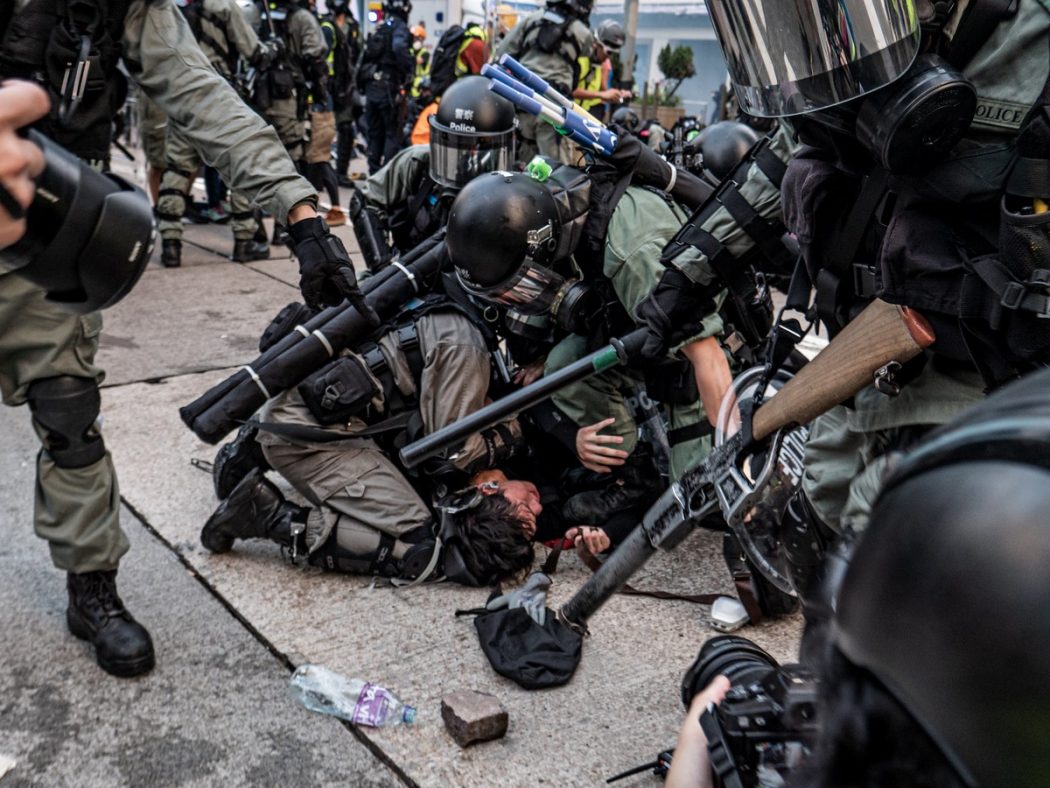
She also released a New Year’s message alongside top officials, saying that the situation in Hong Kong had caused sadness, anxiety, disappointment and even rage.
As the chief executive at the time, Lam said she would not shy away from her responsibility: “I will listen humbly to find a way out.”
January 1, 2020: On New Year’s Day, the city saw another huge turnout as Hongkongers hit the streets to call for democracy. The government rejected “grave concerns” expressed in an open letter by 40 parliamentarians and dignitaries from 18 countries.
It said the claims were “biased and misleading” and urged the overseas politicians to “truly understand” the degree of violence involved in the local protests.
A government spokesperson said: “We also understand that Hong Kong is being used as a pawn by some in the West to further their own agendas, based on a one-sided narrative that paints a negative picture of the HKSAR Government’s actions to restore calm and peace while ignoring the ongoing serious threats to law and order by radicals that they would hardly tolerate in their own country.”
January 21, 2020: At the World Economic Forum in the Swiss resort of Davos, the Hong Kong leader alleged there was foreign influence behind the Hong Kong protests, but said she had no conclusive evidence.
In an interview with CNBC, Lam said the demonstrations had attracted “disproportionate commentary” from Western media and foreign governments.
“And I do feel that perhaps there is something at work, although I said there hasn’t been any conclusive evidence, so there is a bigger picture other than the domestic situation.”
May 11, 2020: In an interview with state-run newspaper Ta Kung Pao, Lam said students in Hong Kong should be protected from being “poisoned,” as she claimed “false and biased information” had spread on campuses.
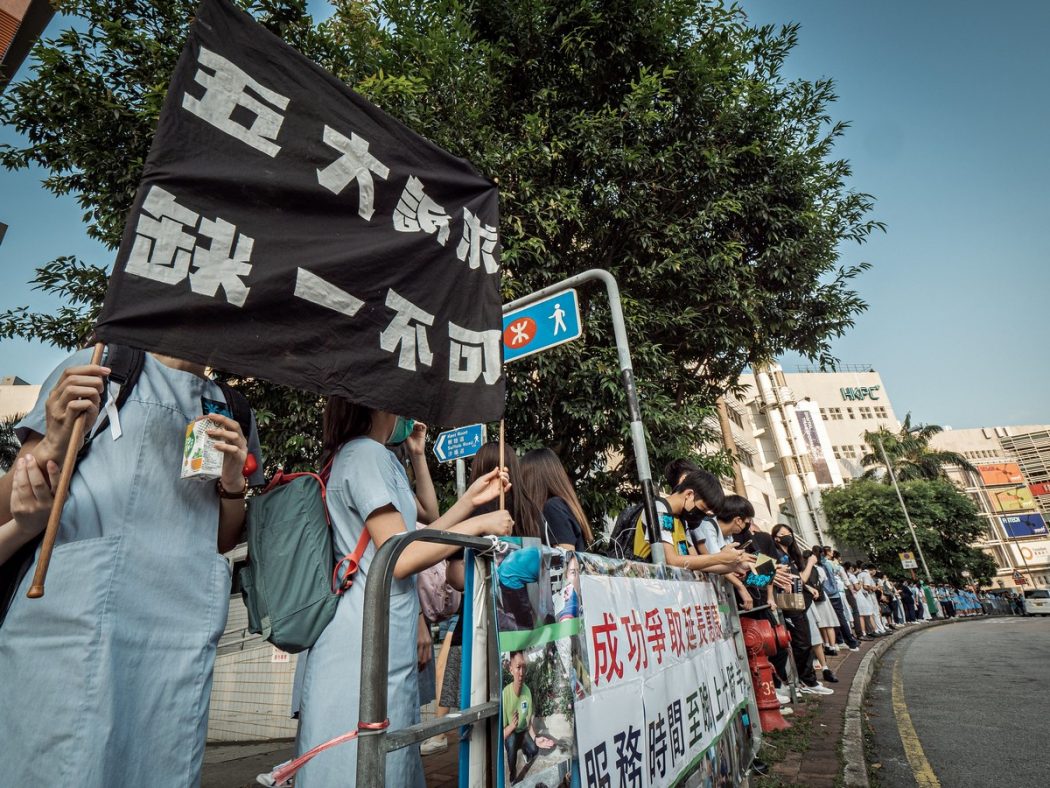
Pro-Beijing media and politicians had said school courses such as Liberal Studies were to blame for inciting students to take part in the unrest. Lam said schools and the education authorities should be wary that subjects could be “infiltrated.”
May 15, 2020: Standing in front of a screen depicting protest violence and emblazoned with the words “The Truth About Hong Kong,” Lam hailed a 999-page report published by the Independent Police Complaints Council on the behaviour of the force during the months of protest.

She said the report, which largely exonerated police of misconduct, was “comprehensive, objective, fact-based and weighty.” She agreed with its findings that the months-long protests had “changed its nature,” saying peaceful demonstrations had degenerated into radical actions which plunged Hong Kong into chaos.
“These escalating violent incidents, if not stopped promptly and effectively, will shake the concept of One Country, Two Systems and social stability, pushing Hong Kong into a dark abyss.”
May 24, 2020: On this day, police fired tear gas and made 180 arrests as Hongkongers took to the streets to protest against the looming national security law. In a statement released in the evening, the government condemned the unlawful assemblies and called the protests in Causeway Bay and Wan Chai “extremely violent and illegal.” In the Chinese version of the statement, the authorities claimed the demonstrations showed that advocates of “Hong Kong independence” and “black-clad violence” remained rampant in the city.
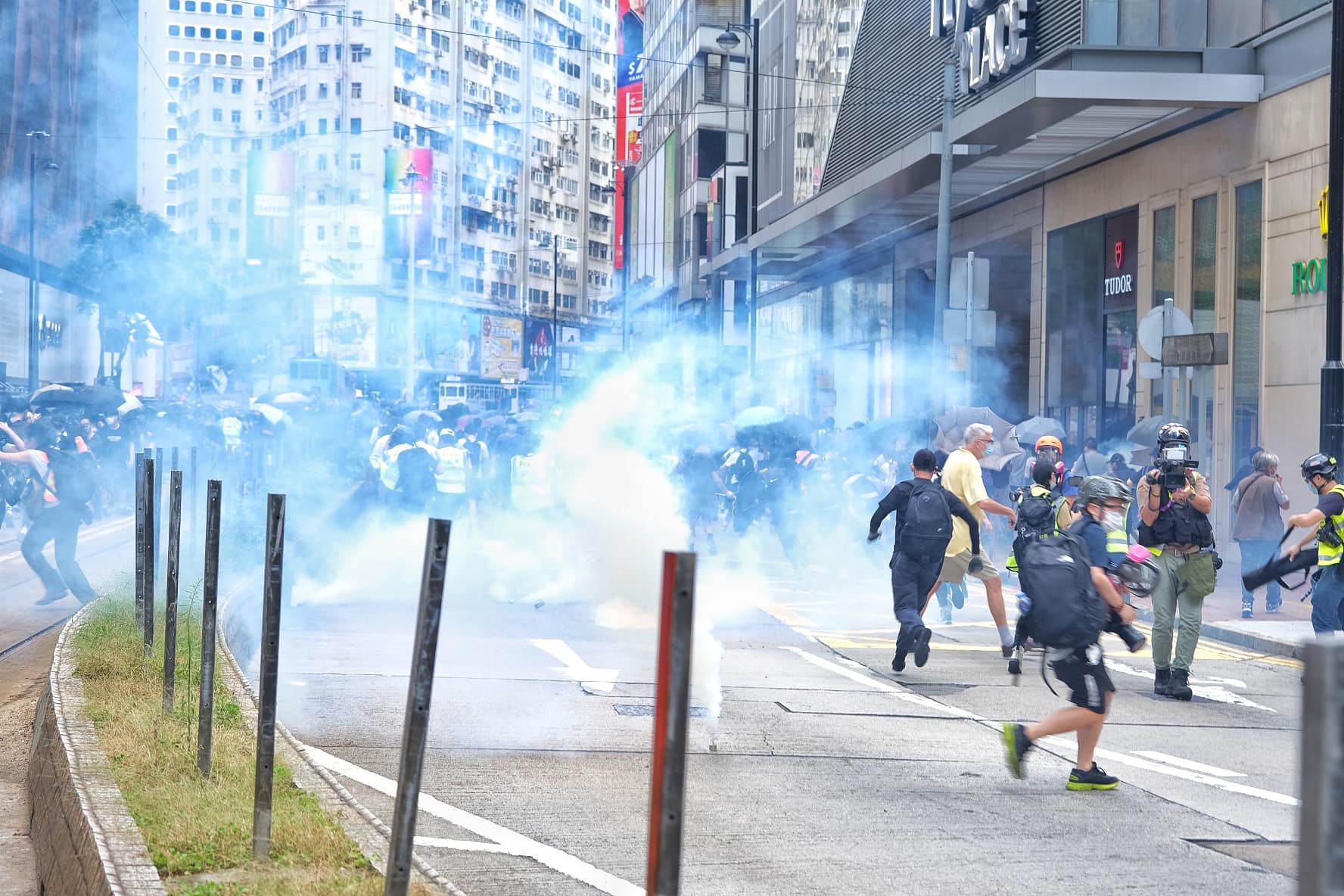
On the same day, then-security minister John Lee threw his weight behind Beijing’s decision to enact laws for Hong Kong to safeguard national security. He said Hong Kong transformed from one of the safest cities in the world to being shrouded by black-clad violence within a few months. Again, the term “black-clad violence“ only appeared in the Chinese statement but not the English version.
June 30, 2020: Beijing inserted national security legislation directly into Hong Kong’s mini-constitution – bypassing the local legislature – following a year of pro-democracy protests and unrest. It criminalised subversion, secession, collusion with foreign forces and terrorist acts, which were broadly defined to include disruption to transport and other infrastructure.
The move gave police sweeping new powers, alarming democrats, civil society groups and trade partners, as such laws have been used broadly to silence and punish dissidents in China. However, the authorities say it has restored stability and peace to the city.

November 18, 2020: The security chief praised the security law as “reverting the chaotic situation” in Hong Kong and restoring stability to the city. His comments were part of his response to questions raised by then-Democratic Party lawmaker James To at the legislature about the societal and economic changes in the city after Beijing passed the law.
In his Chinese reply, Lee blamed “black-clad violence” for downgrading Hong Kong’s global ranking concerning law and order: “Ultimately, the root cause of the problem is black-clad violence.”
The English version of his reply, however, translated the Chinese term “black-clad violence” as “the violent riots.”
March 8, 2021: At a regular press briefing, Lam was asked about the national security arrest tally, which surpassed 100 in March 2021, around eight months after the law was enacted.
The reporter quoted Lam’s previous remarks, in which she assured Hongkongers that the controversial law would only target a “small minority.” The journalist then pointed to the dozens of pro-democracy figures who were arrested and charged with conspiracy to commit subversion in connection with an unofficial legislative primary poll. Lam was asked if she felt that she had “deceived the people of Hong Kong.”
In response, Lam said it was clear that the security law restored the personal freedom and safety of an overwhelming majority of Hong Kong residents. There was a long period of time when people did not dare to go out, take the MTR or express their opinions, Lam said.
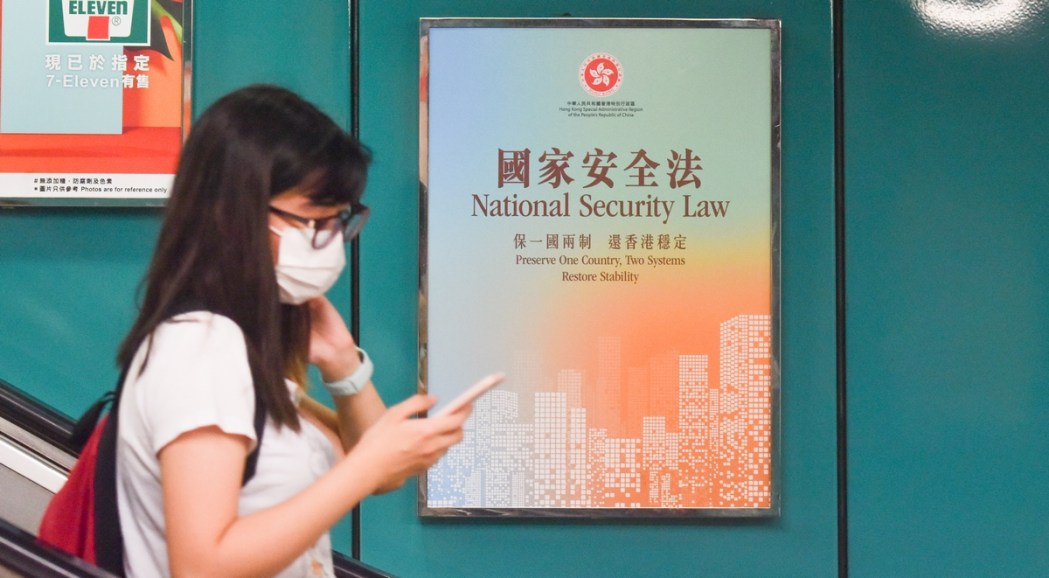
“Many corporations, perhaps because their stance is more supportive of the government or the country, did not dare to operate. Even during our fight against the pandemic, some hotels also did not dare to rent premises to us for quarantine purposes, that is also because of the shadow of ‘black violence’,” she said.
July 5, 2021: Days after the first anniversary of the enactment of the national security law, Secretary for Security Chris Tang hailed the legislation as delivering “instant results.” In particular, the foreign collusion offence helped prevent pro-independence elements from joining forces with overseas powers, he said, while the secession offence prohibited secessionist behaviour.
“Regarding the subversion offence, it helps lower the risk of someone attempting to seize governance by initiating [a] ‘colour revolution’,” the minister, who formerly led the city’s police force, said.
August 27, 2021: Security chief Tang spoke to the press about the law enforcement figures relating to national security. He made reference to a court case which saw two defendants pleading guilty to colluding with foreign forces and said it was revealed at the hearing that the case involved a foreigner who paid the duo to urge foreign governments to sanction Hong Kong.
“I believe as more and more details of the case are revealed in court, we will see clearly that what happened in 2019 was not just a matter of young people expressing their views, but rather there were some mastermind figures who intended to harm national security. It was an organised, criminal behaviour similar to a colour revolution,” he claimed.
January 31, 2022: Then-chief executive Lam attended a media briefing related to a government investigation into officials who attended a birthday party for a delegate to China’s top legislature, which was suspected to be in violation of Covid-19 social distancing rules.
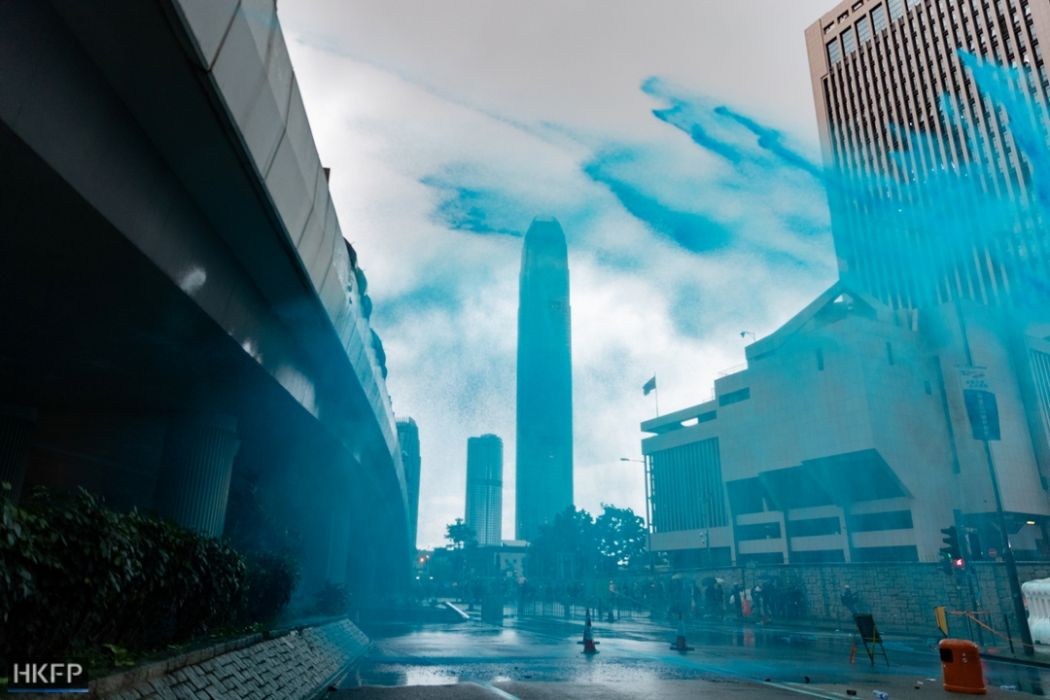
The press conference was held hours after the home affairs secretary Caspar Tsui tendered his resignation over the scandal. Lam was asked whether the government imposed double standards on officials, as it took disciplinary action against those involved in the birthday party scandal, while no principal officials were held accountable following the political turmoil in 2019.
In response, Lam said she found it difficult to understand how the reporter related the matter to the 2019 protests. The government implemented many controversial policies at times or even most of the time, she said.
“In hindsight, the legislation pushed in 2019 was justified. However, some anti-China and Hong Kong individuals used this as an opportunity to stir up chaos in Hong Kong and even engaged in behaviour resembling a ‘colour revolution’,” the then-Hong Kong leader said.
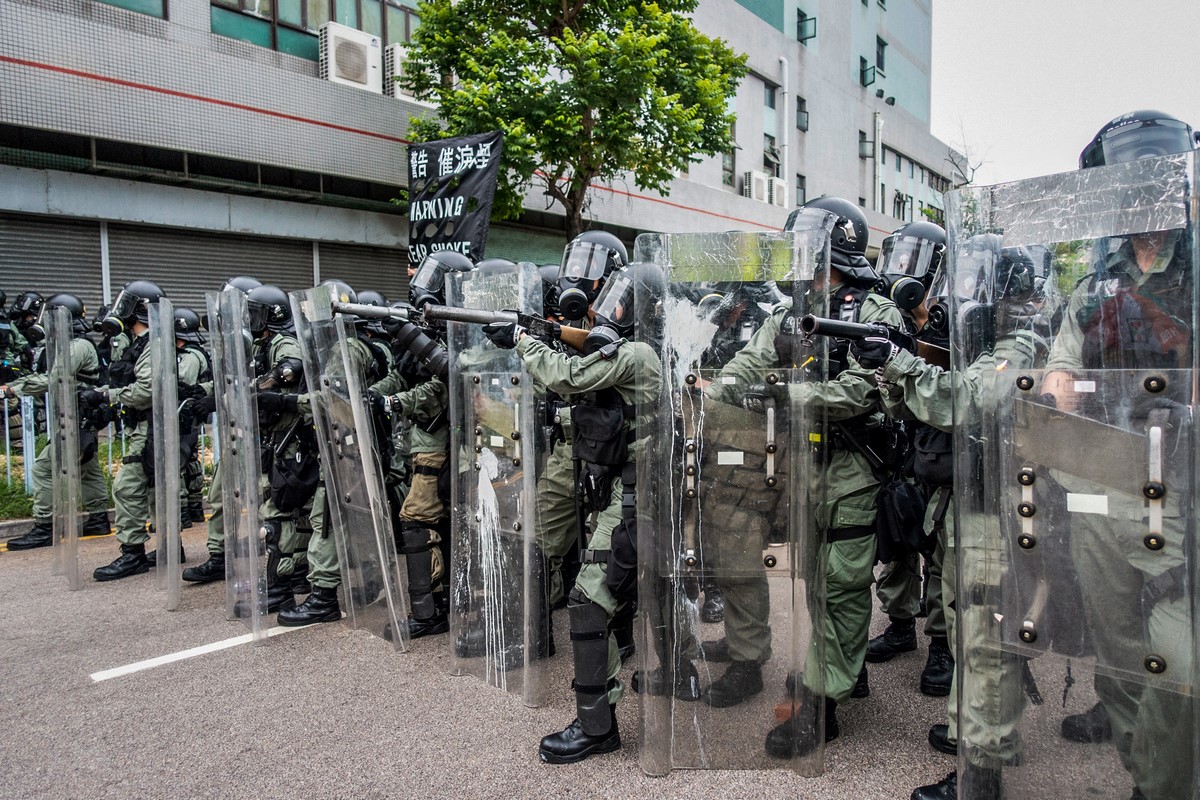
“We should be grateful to many individuals, including the police, who upheld principles and bottom lines and helped us get through the ‘black violence’ incident. Therefore, there is no need to hold anyone personally responsible,” she added.
July 6, 2022: Days after former security minister John Lee took the reins as Hong Kong’s new leader, he continued the government rhetoric of describing the 2019 unrest as “black-clad violence.” At an opening ceremony for an exhibition celebrating cultures, arts and crafts of Chinese provinces, Lee thanked pro-Beijing federations for being a “strong supporting force” of the government, including backing its law enforcement actions.
“A few years ago, Hong Kong faced unprecedented ‘black-clad violence,’ external forces interfering in Hong Kong affairs, and the destruction and political impact of threats to national security. Even in face of intimidation, various hometown associations remained resolute in supporting the SAR government’s governance in accordance with the law. They fearlessly condemned violent and illegal behaviour, did their utmost to maintain social stability, and upheld national security,” he said.

November 15, 2022: After Glory to Hong Kong, a song linked to the 2019 protests and unrest, was played instead of the March of the Volunteers at an international rugby match, Lee linked the song “to the 2019 violence and disturbances, and advocacy for Hong Kong’s independence.”
April 15, 2023: On Hong Kong’s National Security Education day, Lee warned that Hong Kong must not underestimate the risks to national security as the world experienced a “major upheaval” with geopolitical tensions and rapid changes in international relations.
He said activities endangering national security had “escalated” over the past decade, including the opposition to the Moral and National Education programme in 2012, the 2014 Occupy Central movement, the 2016 Mong Kok unrest and the “black-clad violence” and “Hong Kong’s version of [a] colour revolution” in 2019.
“During this period, Hong Kong fell into an abyss of violence. Citizens were fearful all day long, transportation was severely paralysed, and daily life was greatly affected. I believe that everyone still vividly remembers the evil acts of arson and assault, caused by ‘black violence’ three years ago. Every time we recall those worrisome and painful days, we still feel a sense of heartache,” he said.
May 2, 2023: Chief Executive John Lee told a reporter that the pro-democracy demonstrations and unrest of 2019 should be referred to as the “black violence,” not “protests.” He was responding to a question about how post-protest Hong Kong is set to see local elections with a proportion of democratically-elected seats lower than in colonial times.
“First of all, it is not the 2019 protests. It is the black violence. It is the attempt to make Hong Kong independent and [an] attempt to cause disaster to Hong Kong society as a whole that we need to prevent,” Lee said. “I think that has been made very clear. We lived through that, and don’t forget it. We have to bear that in mind so as to ensure that in the long run, the system will protect us from all this chaotic and harmful situation to arise again,” he said.
Support HKFP | Policies & Ethics | Error/typo? | Contact Us | Newsletter | Transparency & Annual Report | Apps
latest national security stories
Support HKFP | Policies & Ethics | Error/typo? | Contact Us | Newsletter | Transparency & Annual Report | Apps
















